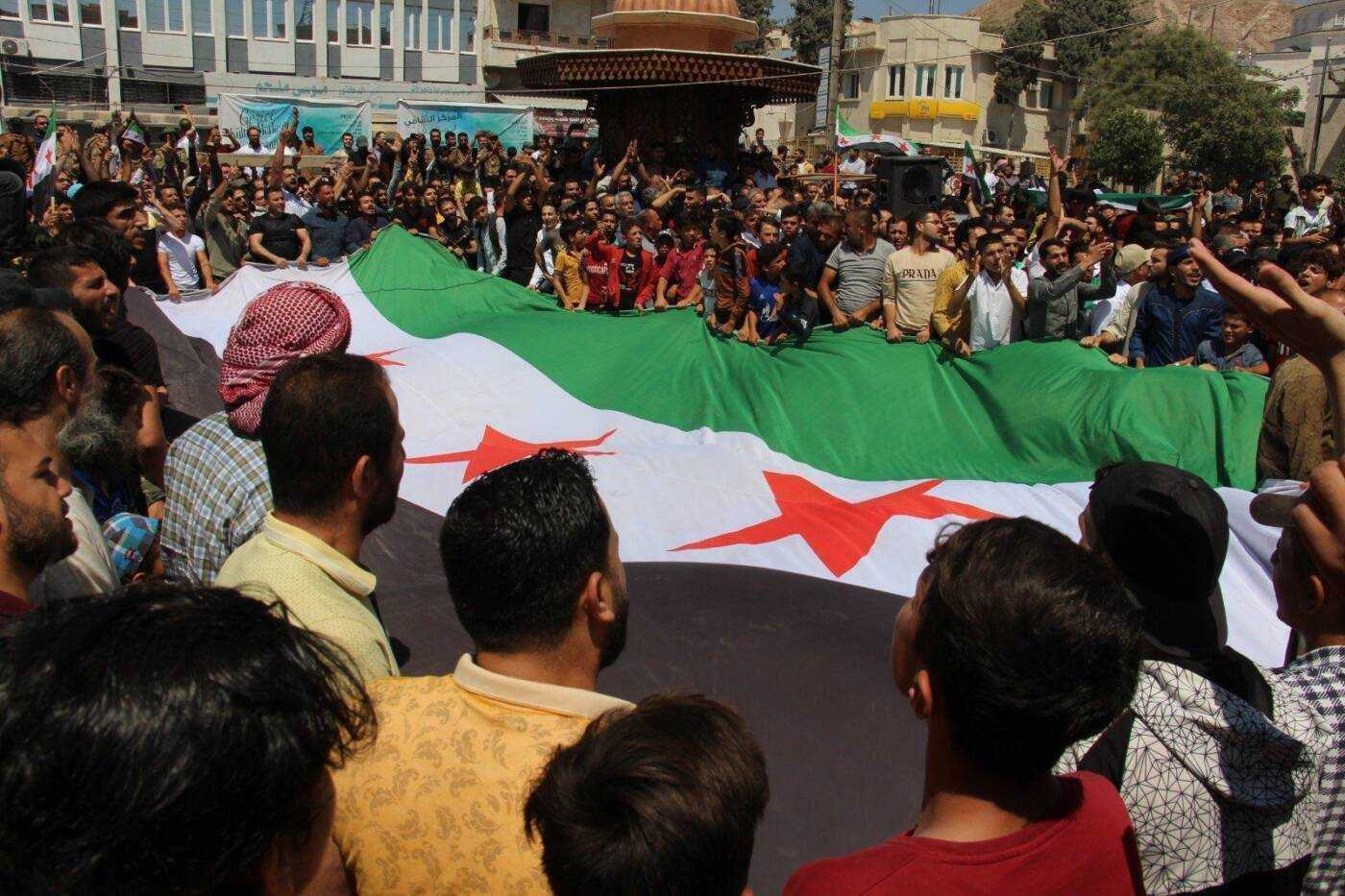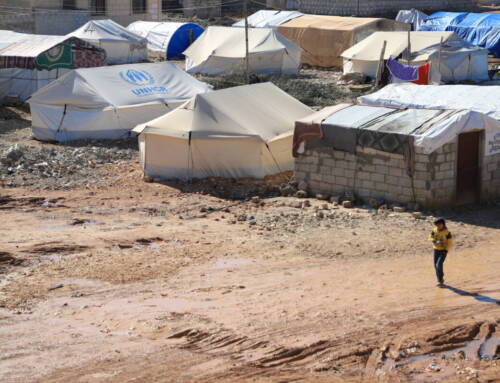Op-Ed: Demonstrations in northwestern Syria send a message to Turkey and local authorities
Recent demonstrations across Syria’s opposition-held northwest held a message for both Turkey and local Turkish-backed authorities, writes Syrian lawyer Ghazwan Koronfol.
17 August 2022
The demonstrations that spread across Syria’s opposition-controlled northwest last week were more than a rejection of Turkish Foreign Minister Mevlüt Çavuşoğlu’s statements warning “there will be no lasting peace” without reconciling with the Assad regime. They were also a message to all those concerned, saying “enough is enough” to the path imposed by the military factions that control those areas with armed force. This extends from being bound by Turkey’s decisions in every minute detail to the way those areas, which have become fiefdoms, are run: Each faction affiliated with the Syrian National Army (SNA) runs a fief, according to its vision and its commanders’ mood—far from any rule of law.
Less than 48 hours after the demonstrations last Thursday and Friday, the Turkish-backed SNA factions launched a campaign of arrests against some of the protesters. In parallel, Ankara announced that its security forces, in cooperation with Syrian counterparts in the area, successfully detained two young men for the crime of burning the Turkish flag during the demonstrations. News is circulating that the two men were taken to Turkey to be tried for the crime.
Of course, many Syrians—whether in northern Syria or refugees in Turkey—respect what is highly valued by the Turks, especially symbols of the state’s sovereignty such as the flag and national currency. The flag burning in one of the demonstrations was an isolated case, one condemned by most Syrians.
But it must be emphasized that the trial of those accused of burning the flag must be before a competent court in the place where the incident occurred: in northwestern Syria, with Syrian judges and under the provisions of Syrian law in force in those areas. Transferring the two detainees—if true—into Turkish territory would be a violation of legal obligations. The perpetrators are not Turkish, and the incident did not take place within Turkish territory. As such, it is also a violation of state sovereignty.
Stopping Syrian courts in northern Syria from doing their job in this case sends a bad message to Syrian society. It would reveal the fragility of the Turkish authorities’ position and their lack of confidence in the capacity of those courts to carry out their duties—which, like all other facilities and institutions in the area, are established, supported and sustained by Turkey.
In a previous incident, the Anti-Terrorism Directorate in the northern Aleppo countryside circulated the names of a number of high school students sought for arrest on the charge of “insulting a sister state of the Syrian revolution.” The charge referred to the effacing of a Turkish flag and the phrase “brotherhood without borders” from the wall of the Education Directorate in Azaz city during protests against the results of public high school exams earlier this month. Protesting students demanded test papers be re-graded following an 80 percent failure rate.
Article 282 of the Syrian Penal Code punishes those who openly disparage a foreign country, its army, flag or national emblem, or who publicly slander or criticize a foreign head of state, its ministers or political representative in Syria. But a complaint from the aggrieved party is a condition for action to be brought against a defendant.
Implementing the provisions of Syrian law in the northwest and committing to its obligations by all is a positive and important step. We, as jurists and lawyers, have long called for the law to be a ceiling over everyone. But can those in charge of running these areas implement all the law’s provisions, for everyone? Or will it be selective, allowing some to have influence outside the scope of its rulings and applications?
The law that those in charge claim should be applied to the flag incident, under Article 282, is the same law that stipulates, in Article 280, imprisonment for all those “who recruit on Syrian territory, without the consent of the government, soldiers to fight for a foreign country.” This is an act the SNA factions were implicated in in battles in Libya and Azerbaijan.
The same law, in Article 296, punishes “whoever usurps political or civilian leadership or military command” with at least seven years’ imprisonment. If these laws apply to some in northwestern Syria, they apply to all.
Returning to the latest demonstrations in northwestern Syria, they are a message to Turkey: Even if we are partners or allies, we will not necessarily be followers who fully comply with the course of your policy even if it contradicts our national interests. We alone paid a heavy price in blood, detention, enforced disappearance, expulsion and displacement. We have a right that the ruling authority must preserve and fulfill.
As for the second message, addressed to the de facto authorities in these areas, and to Turkey as a backer of these authorities, it is: Enough is enough. Rights and freedoms are being violated daily, instead of being protected. Your administration and institutions, at various levels, have become an added burden on people’s shoulders. A comprehensive review must be conducted of their management methods and governance, and they must be subject to community oversight and the rule of law. And above all, stop the leaders of the factions, or militias, from interfering in what are not their affairs.
Regardless of the fluctuations in Turkey’s Syria policy, it will remain an ally of Syrians who reject the Assad regime and its security apparatus. But Turkey has unfortunately not improved governance and other soft power investments that have started to slip out of its hands, whether in terms of how it deals with the “liberated areas” or how it manages the issue of Syrian refugees living in its territory. With that, it is losing important cards before even taking a seat at the table as a regional actor with influence on the Syrian issue and contributing to a lasting solution to the conflict in Syria.
This article was originally published in Arabic and translated into English by Mateo Nelson.







